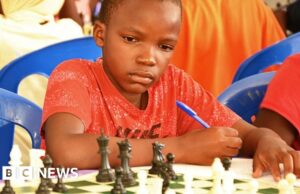It’s never easy for couples to divorce, especially when children are involved. When making this tough decision, it can be even more challenging to talk to your kids about the divorce. The conversation may bring up emotions of sadness and confusion, but by following some simple tips, you can make sure that it is a healthy and productive conversation.
Here are some of the best ways to talk to your children about divorce.
Focus On Your Children’s Emotional Needs
Divorced parents need to focus on their child’s emotional needs during this difficult time. Reassure them that things will eventually get better and make sure they know it is not their fault that the marriage is ending. Kids may feel confused or guilty, so you need to emphasize that no matter what happens between you and the other parent, both of you will always love them unconditionally.
It’s important to prioritize their well-being. And the best way to do this is through candid communication. Acknowledge their feelings and provide them with a safe space to express themselves. Remember that your emotions are also high during the process, and that’s one of the reasons to hire a lawyer for your divorce so that you can remain impartial and focus on your children’s comfort instead of the challenging legal details.
Have A Positive Mindset
Even though this conversation may bring up a lot of negative emotions, try to remain positive throughout the discussion. Remaining positive will help keep the conversation constructive rather than destructive. Plus, your children should feel safe knowing they have both parents by their side through this difficult time. Avoid using phrases like ‘mommy hates daddy’ or ‘daddy doesn’t love us anymore’ as these statements can be damaging to a young mind.
Remember that kids don’t yet fully comprehend what divorce means, so it’s essential to explain it in an age-appropriate way. If they are old enough, let them know that even though you and your partner are separating, both of you still love them very much. Reassure them that both parents will always be available for them if they need anything.
Be Honest And Open
When talking to your children, always be honest. Do not give them any false hope that you and their other parent will get back together or make promises that cannot be kept, as they will find out eventually and could become very resentful of you. Be sure to explain why the marriage is ending in an age-appropriate way, such as saying:
- “Mommy and Daddy are not able to make each other happy like we used to.”
- “We love each other, but we just don’t want to stay married anymore.”
If talking to your kids directly about your divorce is too tricky, you can also speak to a therapist or family counselor. They can help you come up with the best approach to explaining the divorce and can answer any questions your children have. It’s also crucial that both parents are as open and forthcoming as possible when talking to their kids.
Involve Them In Decision Making
Involving your children in certain decisions related to the divorce can give them a sense of control over the situation and make them feel more secure during such a significant transition for their family. For example, allow them to choose which parent they would like to live with or where they would like to spend holidays or birthdays. This will show them that even though the family dynamic has changed, their opinion matters just as much.
Involving kids in decision-making creates an open dialogue about the divorce between you and your children. It will help them better understand what is going on, allowing them to process it more easily. It can also help reduce any anxiety or fear they may have, as it is often easier for a child to cope with something when they feel some sense of control over it.
Anticipate Questions
As you talk about divorce with your child, expect lots of questions. Young minds tend to ask questions incessantly as they try to wrap their heads around such a major life change. Being prepared with answers will help ensure that all their questions are answered without feeling overwhelmed by either parents’ information overload or judgemental responses.
Some of the common questions children might ask about divorce include:
- Why do you have to get divorced?
- Who will I live with?
- Will I still see both of you?
Remember that answering the questions age-appropriately is essential for helping them understand the situation. Again, be honest with your answers and reassure your child that they are still loved.
Keep The Lines of Communication Open
Divorce is hard on children, who may still question why it happened or how it will affect them going forward. As such, it’s essential for parents going through a divorce to keep the lines of communication open with their kids so they can talk freely without fear of judgment or criticism from either side. Doing this ensures everyone gets heard while preventing resentment from developing, which could hinder any potential healing process.
To make it easier to talk about divorce with kids, try to create a safe space for open dialogue. This could be done by simply setting aside some time to discuss the situation or by coming up with ground rules that both parties must follow.
Reassure Them That You Will Always Be There for Them
Divorced parents should also reassure kids that even though things have changed, both parents will always be there for them emotionally and financially throughout their lives. It’s also important to emphasize that while living arrangements may change, the bond between parent and child never has to—you will still be there as much as before, if not more. This reassurance can go a long way in helping your kids cope with such a big life change.
Discuss ways you can spend more time with your kids, such as planning fun activities and trips. You can also suggest different ways to stay connected even when you’re not together, such as having regular phone calls or video chats.
Seek Professional Help
If tensions between parents start escalating during conversations about the divorce process, consider involving therapists who specialize in helping families going through divorces.
They can guide you on how best to approach different aspects of the process and provide support during this challenging period in everyone’s lives. Professionals can also help kids understand and process the changes they are now facing.
You Can Make It Easier With Clear Communication
In conclusion, discussing divorce with your children can be a difficult experience, but it doesn’t have to be. You can make it easier by taking time to explain the situation, keeping communication open and honest, preparing for reactions, maintaining a united parental front, and seeking help from professionals when needed.














